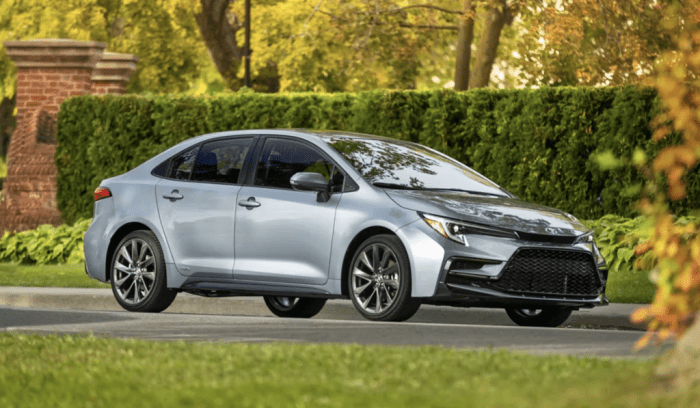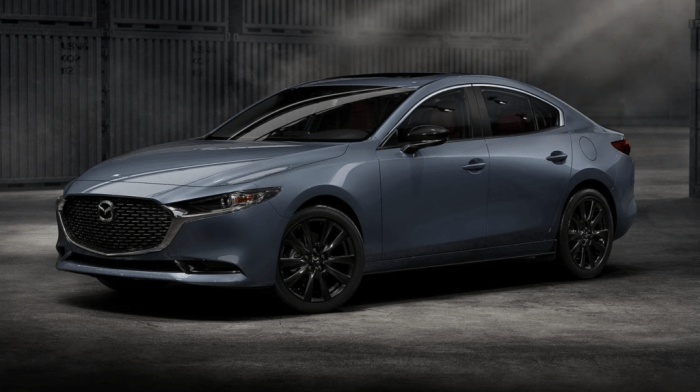Finding a reliable and affordable car in 2025 can feel like navigating a minefield. With rising prices and evolving technology, it’s crucial to do your research. This comprehensive guide explores the top budget-friendly car options available, considering factors like fuel efficiency, safety features, maintenance costs, and overall value. We’ll delve into various segments, highlighting models that offer the best bang for your buck without compromising on essential qualities.
Understanding Your Budget and Needs
Before diving into specific models, it’s vital to define your budget and needs. Consider the following:
- Purchase Price: Set a realistic budget for the initial purchase price, factoring in potential taxes, fees, and insurance costs. Consider financing options and their implications on your monthly payments.
- Running Costs: Factor in fuel consumption (consider both gas and electric options), insurance premiums (which vary by model and driver profile), maintenance expenses (including oil changes, tire rotations, and potential repairs), and potential depreciation.
- Vehicle Type: Do you need a compact car for city driving, a spacious sedan for family needs, an SUV for versatility, or a truck for hauling? Your choice will significantly impact your budget and fuel efficiency.
- Features: Prioritize essential features like safety (airbags, anti-lock brakes, stability control), fuel efficiency, and reliability. Consider optional features like infotainment systems and advanced driver-assistance systems (ADAS) based on your budget and priorities.
Top Budget-Friendly Car Categories in 2025
Small Hatchbacks and Sedans: City Slickers
Small hatchbacks and sedans are ideal for city dwellers prioritizing fuel efficiency and maneuverability. Models to consider (availability may vary by region):
- Hyundai Accent/Kia Rio: Known for their reliability, fuel efficiency, and competitive pricing. Often offer decent standard features.
- Nissan Versa/Sentra: Provide spacious interiors for their class, along with relatively affordable maintenance costs.
- Honda Fit/Civic (base models): Honda’s reputation for reliability translates to lower long-term costs, although prices might be slightly higher than other options in this category.
- Toyota Yaris/Corolla (base models): Similar to Honda, Toyota offers a strong reputation for reliability, but base models are likely to be slightly more expensive.
Subcompact SUVs: Versatile and Practical
Subcompact SUVs offer a balance of fuel efficiency, cargo space, and elevated driving position, making them popular choices for families and individuals needing more versatility.
- Kia Seltos/Hyundai Kona: These models often include a good range of standard features and safety technology at competitive prices.
- Mazda CX-3/CX-30: Known for their stylish design and engaging driving dynamics, though they might be slightly more expensive than other options.
- Subaru Crosstrek: Offers standard all-wheel drive, which is beneficial in various weather conditions, but this comes at a slightly higher price point.
Compact Sedans and Hatchbacks: Balancing Space and Efficiency
For those needing more space than a subcompact but still prioritizing fuel efficiency, compact cars offer a good compromise.
- Honda Civic: A long-standing favorite for its reliability, fuel efficiency, and comfortable ride. Mid-range trims often provide good value.
- Toyota Corolla: Similar to the Civic, the Corolla boasts reliability and fuel efficiency, with a wide range of trims to suit different budgets.
- Mazda3: Known for its sporty handling and upscale interior, though it might be on the higher end of the compact car budget.
Electric Vehicles (EVs): The Future of Budget-Friendly Driving?
While initially more expensive, the long-term cost savings of EVs, particularly regarding fuel, are becoming increasingly attractive. Government incentives and decreasing battery prices are making EVs more accessible.
- Chevrolet Bolt: Offers a competitive range and price point, making it a strong contender in the budget-friendly EV market.
- Nissan Leaf: A long-standing player in the EV market, offering a reliable and affordable option (depending on the trim level and battery size).
- (Check for emerging models in 2025): The EV market is rapidly evolving, so researching newer models from various manufacturers is crucial.
Factors to Consider Beyond the Price Tag
- Safety Ratings: Prioritize vehicles with high safety ratings from organizations like the IIHS (Insurance Institute for Highway Safety) and NHTSA (National Highway Traffic Safety Administration).
- Reliability: Research the reliability of different models using resources like Consumer Reports and J.D. Power. A reliable car will save you money on repairs in the long run.
- Fuel Efficiency: Consider the EPA’s estimated fuel economy ratings to determine the long-term running costs.
- Maintenance Costs: Factor in the cost of routine maintenance and potential repairs. Some models are known to be more expensive to maintain than others.
- Resale Value: While not a primary concern for budget-conscious buyers, understanding the potential resale value can help mitigate losses when you decide to sell or trade your vehicle.
Frequently Asked Questions (FAQ)
- Q: What is the best budget-friendly car for a family? A: Subcompact or compact SUVs often offer the best combination of space, fuel efficiency, and affordability for families. Specific models depend on your budget and needs.
- Q: How can I find the best deals on used cars? A: Check online marketplaces, visit local dealerships, and compare prices from multiple sources. Consider certified pre-owned vehicles for added peace of mind.
- Q: What are the hidden costs of car ownership? A: Hidden costs include insurance, registration fees, taxes, maintenance, repairs, and potential depreciation.
- Q: Are electric cars really more affordable in the long run? A: While the initial purchase price might be higher, the lower running costs (no gas, reduced maintenance) can make EVs more affordable in the long term, especially with government incentives.
- Q: Where can I find reliable car reviews and ratings? A: Consult reputable sources such as Consumer Reports, J.D. Power, and Edmunds.
Resources
- Consumer Reports
- J.D. Power
- Insurance Institute for Highway Safety (IIHS)
- National Highway Traffic Safety Administration (NHTSA)
- EPA FuelEconomy.gov
Call to Action
Start your search for the perfect budget-friendly car today! Use the information in this guide to research models that meet your needs and budget. Remember to compare prices, read reviews, and prioritize safety and reliability. Happy driving!
Query Resolution
What are the best fuel-efficient options in this price range?
Hybrid and electric vehicles often offer superior fuel economy, but their initial cost might be higher. Smaller, more efficient gasoline-powered cars are also viable budget-friendly choices. Research specific models for the best fuel efficiency ratings.
How can I find the best deals on used cars?
Check reputable online marketplaces, certified pre-owned programs from dealerships, and local classifieds. Thoroughly inspect any used car before purchase and consider getting a pre-purchase inspection from a trusted mechanic.
What safety features should I prioritize?
Prioritize cars with good safety ratings from organizations like the IIHS and NHTSA. Essential safety features include anti-lock brakes (ABS), electronic stability control (ESC), and multiple airbags.

Source: caredge.com
What about insurance costs?

Source: caredge.com
Insurance costs vary greatly depending on the car’s make, model, and your driving record. Get quotes from multiple insurers before purchasing a vehicle to compare premiums.
